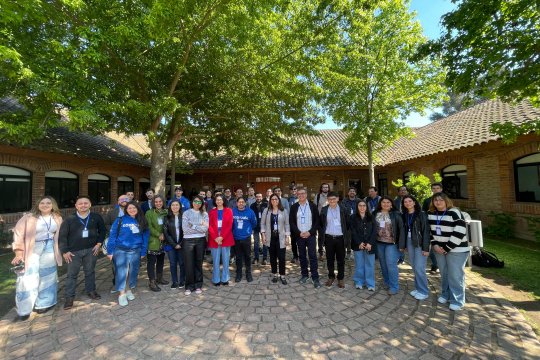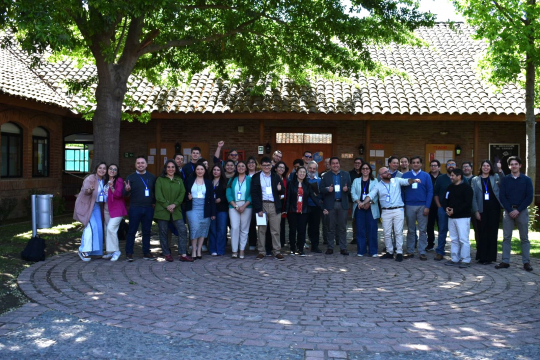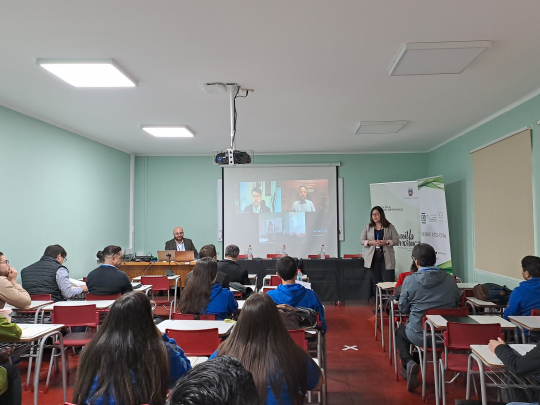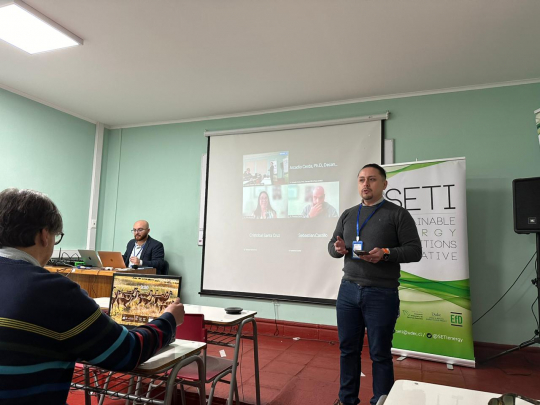More than 60 participants from academia, policymakers, NGOs, and environmental organizations convened on October 24th and 25th at the Tenth Annual Meeting of NENRE EfD Chile to discuss and address the most pressing sustainability challenges.
The meeting took place at the University of Talca's Colchagua Campus in the O'Higgins region. The participants were researchers, undergraduate, master's, and doctoral students alongside representatives from governmental and non-governmental organizations, policymakers, and key figures in the environmental sector.
The workshop had some prominent participants, such as Alejandro López-Feldman (Director of Research at EfD), Mario Rívas Peña (SEREMI from the Ministry of the Environment in the Ñuble region of Chile), Arcadio Cerda (Dean of the Faculty of Economics and Business at University of Talca), and Jorge Carpinelli (Director of Development and Innovation, at University of Concepción).
Panel discussions covered broad range of topics
The central component of the workshop was the public policy discussion panels. The first session, moderated by Marjorie Baquedano (professor at Universidad del Bío-Bío), explored how academia, the public sector, and the private sector can work together to develop innovative and effective solutions to environmental challenges.
The second session, moderated by Mauricio Oyarzo (EfD Research Fellow and Deputy Director of the NENRE EfD-Chile), focused on cooperatives as a strategy for climate change adaptation for small and medium-sized farmers. This session highlighted the experiences of agricultural cooperatives in adapting to climate change, with a special focus on the case of the Autonomous Community of Spain, Castilla-La Mancha.
The panel discussions had participants from the Chilean Fisheries Development Institute (IFOP), the Marine Coastal Governance Project, Ketrawe recycling company, the Institute of Agricultural Economics and the Institute of Plant Production and Health of Universidad Austral de Chile, Cooperatives of the South, the General Director of Circular Economy and Agenda 2030 of the Ministry of Sustainable Development of the Regional Government of Castilla-La Mancha and a Professor of Economics, Sociology and Agricultural Policy at University of Castilla-La Mancha.
These panels discussed waste management, water resources, environmental economics, agriculture, businesses, and sustainability challenges, among others.
Students presented research and received feedback
Several parallel research sessions were held to discuss topics such as fisheries and aquaculture, pollution and public policies, climate change, and energy and the environment. Most of the presenters were researchers from Chile, but also policymakers representing, for instance, the Chilean Fisheries Development Institute and researchers from other countries, such as the UK and France,.
Parallel sessions on Advanced Human Capital Formation allowed undergraduate and graduate students to present their current research and to receive feedback from researchers of the EfD Chile center. This activity is a tradition of NENRE’s workshops and is aimed at generating innovative research while providing students a space for developing their research careers.
More information about the event
To see the details of the program please visit the workshop’s website here.
By Belén Pulgar.



